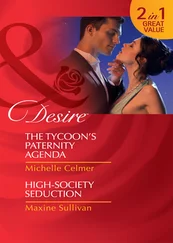“Exactly.” Then Thornton added, with a characteristic forward jerk: “She was sane enough when she left Jamaica. — Though always a bit of a fool.”
“Her aunt tells me that she seems to have lost her memory: or a great part of it. No, if I call her it will simply be to exhibit her condition.”
“Then?”
“I think I shall call your Emily.”
Thornton stood up.
“Well,” he said, “you’ll have to settle with her yourself what she’s to say. Write it out, and make her learn it by heart.”
“Certainly,” said Mathias, looking at his finger-nails. “I am not in the habit of going into court unprepared. — It’s bad enough having a child in the box anyway,” he went on. Thornton paused at the door.
“—You can never count on them. They say what they think you want them to say. And then they say what they think the opposing counsel wants them to say too — if they like his face.”
Thornton gesticulated — a foreign habit.
“I think I will take her to Madame Tussaud’s on Thursday afternoon and try my luck,” ended Mathias: and the two bade each other good-bye.
VI
Emily enjoyed the wax-works; even though she did not know that a wax-work of Captain Jonsen, his scowling face bloody and a knife in his hand, was already in contemplation. She got on well with Mr. Mathias. She felt very grown-up, going out at last without the little ones endlessly tagging. Afterwards he took her to a bun-shop in Baker Street, and tried to persuade her to pour out his tea for him: but she turned shy at that, and he had in the end to do it for himself.
Mr. Mathias, like Miss Dawson, spent a good deal of his time and energy in courting the child’s liking. He was at least sufficiently successful for it to come as a complete surprise to her when presently he began to throw out questions about the death of Captain Vandervoort. Their studied casualness did not deceive her for a moment. He learnt nothing: but she was hardly home, and his carriage departed, than she was violently sick. Presumably she had eaten too many cream buns. But, as she lay in bed sipping from a tumbler of water in that mood of fatalism which follows on the heels of vomiting, Emily had a lot to think over, as well as an opportunity of doing so without emotion.
Her father was spending a rare evening at home: and now he stood unseen in the shadows of her bedroom, watching her. To his fantastic mind, the little chit seemed the stage of a great tragedy: and while his bowels of compassion yearned towards the child of his loins, his intellect was delighted at the beautiful, the subtle combination of the contending forces which he read into the situation. He was like a powerless stalled audience, which pities unbearably, but would not on any account have missed the play.
But as he stood now watching her, his sensitive eyes communicated to him an emotion which was not pity and was not delight: he realized, with a sudden painful shock, that he was afraid of her!
But surely it was some trick of the candle-light, or of her indisposition, that gave her face momentarily that inhuman, stony, basilisk look?
Just as he was tiptoeing from the room, she burst out into a sudden, despairing moan, and leaning half out of her bed began again an ineffectual, painful retching. Thornton persuaded her to drink off her tumbler of water, and then held her hot moist temples between his hands till at last she sank back, exhausted, in a complete passivity, and slipped off to sleep.
There were several occasions after this when Mr. Mathias took her out on excursions, or simply came and examined her at the house. But still he learnt nothing.
What was in her mind now? I can no longer read Emily’s deeper thoughts, or handle their cords. Henceforth we must be content to surmise.
As for Mathias, there was nothing for it but to accept defeat at her hands, and then explain it away to himself. He ceased to believe that she had anything to hide, because, if she had, he was convinced she could not have hidden it.
But if she could not give him any information, she remained, spectacularly speaking, a most valuable witness. So, as Thornton had suggested, he set his clerk to copy out in his beautiful hand a sort of Shorter Catechism: and this he gave to Emily and told her to learn it.
She took it home and showed it to her mother, who said Mr. Mathias was quite right, she was to learn it. So Emily pinned it to her looking-glass, and learnt the answers to two new questions every morning. Her mother heard her these with her other lessons, and badgered her a lot for the sing-song way she repeated them. But how can one speak naturally anything learnt by heart, Emily wondered? It is impossible. And Emily knew this catechism backwards and forwards, inside and out, before the day came.
Once more they drove into town: but this time it was to the Central Criminal Court. The crowd outside was enormous, and Emily was bundled in with the greatest rapidity. The building was impressive, and full of policemen, and the longer she had to wait in the little room where they were shown, the more nervous she became. Would she remember her piece, or would she forget it? From time to time echoing voices sounded down the corridors, summoning this person or that. Her mother stayed with her, but her father only looked in occasionally, when he would give some news to her mother in a low tone. Emily had her catechism with her, and read it over and over.
Finally a policeman came, and conducted them into the court.
A criminal court is a very curious place. The seat of a ritual quite as elaborate as any religious one, it lacks in itself any impressiveness or symbolism of architecture. A robed judge in court looks like a catholic bishop would if he were to celebrate mass in some municipal bath-house. There is nothing to make one aware that here the Real Presence is: the presence of death.
As Emily came into court, past the many men in black gowns writing with their quill pens, she did not at first see judge, jury, or prisoners. Her eye was caught by the face of the Clerk, where he sat below the Bench. It was an old and very beautiful face, cultured, unearthly refined. His head laid back, his mouth slightly open, his eyes closed, he was gently sleeping.
That face remained etched on her mind as she was shown her way into the box. The Oath, which formed the opening passages of her catechism, was administered; and with its familiar phrases her nervousness vanished, and with complete confidence she sang out her responses to the familiar questions which Mr. Mathias, in fancy dress, was putting to her. But until he had finished she kept her eyes fixed on the rail in front of her, for fear something should confuse her. At last, however, Mr. Mathias sat down; and Emily began to look around her. High above the sleeping man sat another, with a face even more refined, but wide awake. His voice, when now he spoke a few words to her, was the kindest she had ever heard. Dressed in his strange disguise, toying with a pretty nosegay, he looked like some benign old wizard who spent his magic in doing good.
Beneath her was the table where so many other wigged men were sitting. One was drawing funny faces: but his own was grave. Two more were whispering together.
Now another man was on his feet. He was shorter than Mr. Mathias, and older, and in no way good-looking or even interesting. He in turn began to ask her questions.
He, Watkin, the defending counsel, was no fool. He had not failed to notice that, among all the questions Mathias had put to her, there had been no reference to the death of Captain Vandervoort. That must mean that either the child knew nothing of it — itself a valuable lacuna in the evidence to establish, or that what she did know was somehow in his clients’ favor. Up till now he had meant to pursue the obvious tactics — question her on the evidence she had already given, perhaps frighten her, at any rate confuse her and make her contradict herself. But any one, even a jury, could see through that. Nor was there any hope, under any circumstances, of a total acquittal: the most he could hope for was escape from the murder charge.
Читать дальше












